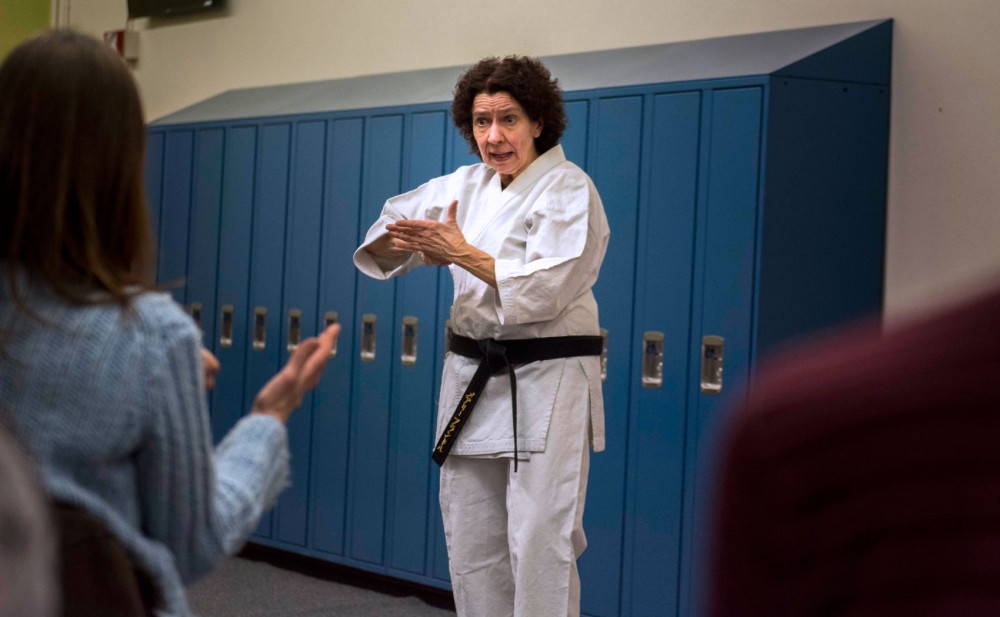With increased concerns over crime this year, many University of Minnesota students say there’s a disconnect between the students and police force.
The Minneapolis Police Department hosted a self-defense workshop Tuesday night, taught by fourth-degree black belt and University instructor Mary Brandl. The workshop, held at Pratt Community School in Prospect Park, aimed to teach basic tactics and moves to help prevent or avoid dangerous situations. But few students attended the event.
Economics junior Leandro Toledo said the communication between police and students is “lacking.”
MPD Crime Prevention Specialist Susan Webb said police often have a hard time reaching students and getting them engaged. The struggle starts with getting basic information out there, she said, because not every student checks his or her email on a regular basis.
“We work all the time trying to reach the students,” Webb said. “We work with the University groups, because we’ve realized that student-to-student relationships help the information come off easier.”
But some students say the police are putting in work that goes unnoticed by students. Business and marketing sophomore Megan Skalla said University presence has increased, and she’s recognized the effort police have put in.
“I get emails every week, and I’ve noticed more cops around,” she said. “I think after crime was such a huge issue in the fall that they’ve done a much better job.”
The University recreation center is also hosting three self-defense workshops taught by Brandl later this month, which are aimed at attracting more students.
“Knowledge is power, and too often in terms of self-defense, it becomes just, ‘Park under lights, carry your keys, kick them in the groin, and poke them in the eyes.’” Brandl said.
Brandl said she tries to give more in-depth advice and skills her students can actually use.
“No matter how strong you are, you’re not the ‘Bourne Identity,’” she said. “No one is invulnerable.”
With so many people on campus, economics sophomore Ruben Weber said he’s surprised University or Minneapolis police don’t provide more follow-up information about crimes on or near campus.
“It’s just so weird to me how someone can get mugged on a campus with 50,000 students and then get away with it almost,” he said. “It just shouldn’t be the case.”
Toledo said the crime alert system is adequate, but it always seems to lack the details necessary to keep students alert for potential crimes.
Weber agreed.
“Maybe use different kinds of media, not just texting,” he said. “If they could use Facebook or put up a picture, drawing or description so that we can actually look out for someone.”


